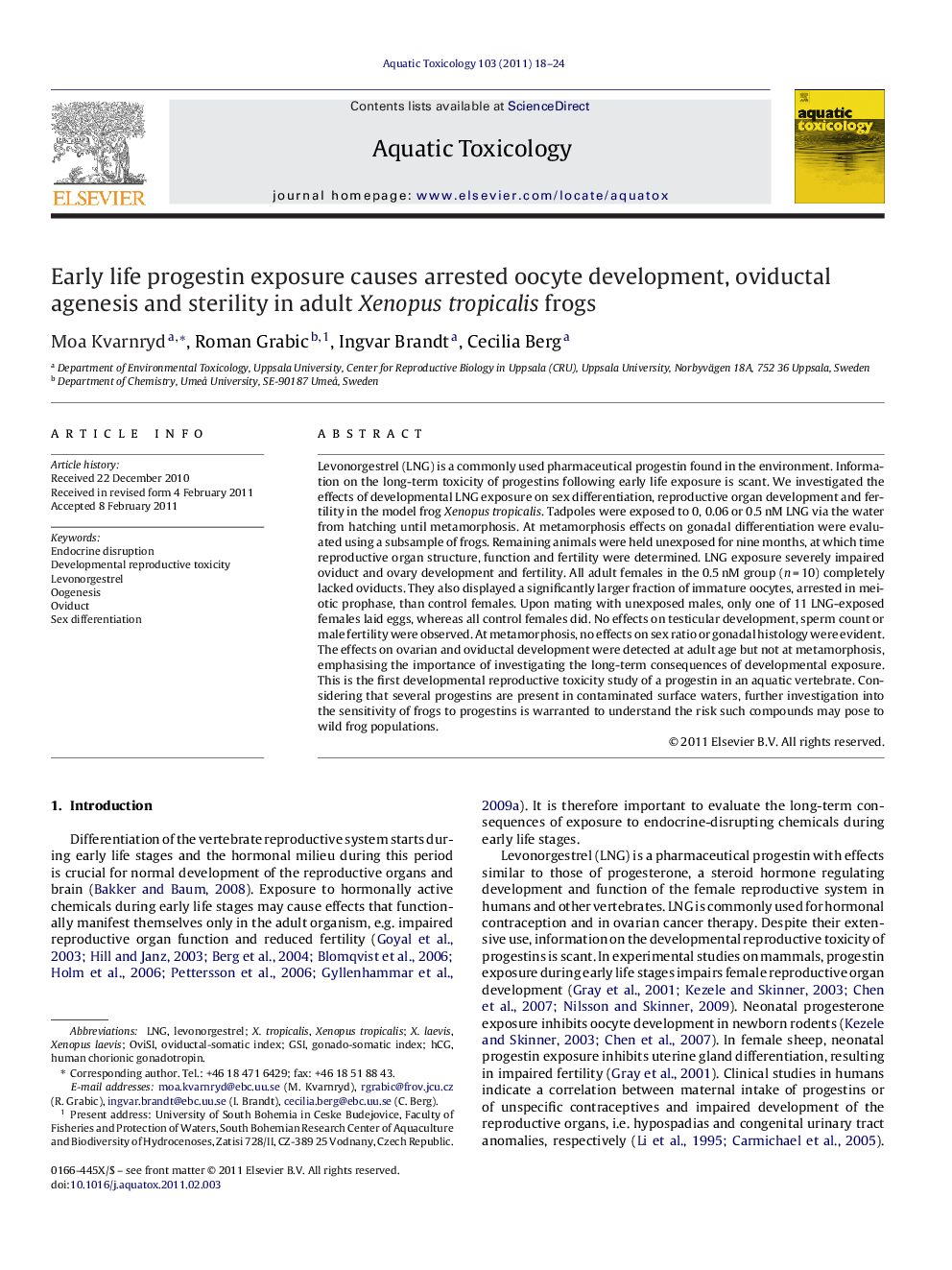| Article ID | Journal | Published Year | Pages | File Type |
|---|---|---|---|---|
| 4530070 | Aquatic Toxicology | 2011 | 7 Pages |
Levonorgestrel (LNG) is a commonly used pharmaceutical progestin found in the environment. Information on the long-term toxicity of progestins following early life exposure is scant. We investigated the effects of developmental LNG exposure on sex differentiation, reproductive organ development and fertility in the model frog Xenopus tropicalis. Tadpoles were exposed to 0, 0.06 or 0.5 nM LNG via the water from hatching until metamorphosis. At metamorphosis effects on gonadal differentiation were evaluated using a subsample of frogs. Remaining animals were held unexposed for nine months, at which time reproductive organ structure, function and fertility were determined. LNG exposure severely impaired oviduct and ovary development and fertility. All adult females in the 0.5 nM group (n = 10) completely lacked oviducts. They also displayed a significantly larger fraction of immature oocytes, arrested in meiotic prophase, than control females. Upon mating with unexposed males, only one of 11 LNG-exposed females laid eggs, whereas all control females did. No effects on testicular development, sperm count or male fertility were observed. At metamorphosis, no effects on sex ratio or gonadal histology were evident. The effects on ovarian and oviductal development were detected at adult age but not at metamorphosis, emphasising the importance of investigating the long-term consequences of developmental exposure. This is the first developmental reproductive toxicity study of a progestin in an aquatic vertebrate. Considering that several progestins are present in contaminated surface waters, further investigation into the sensitivity of frogs to progestins is warranted to understand the risk such compounds may pose to wild frog populations.
